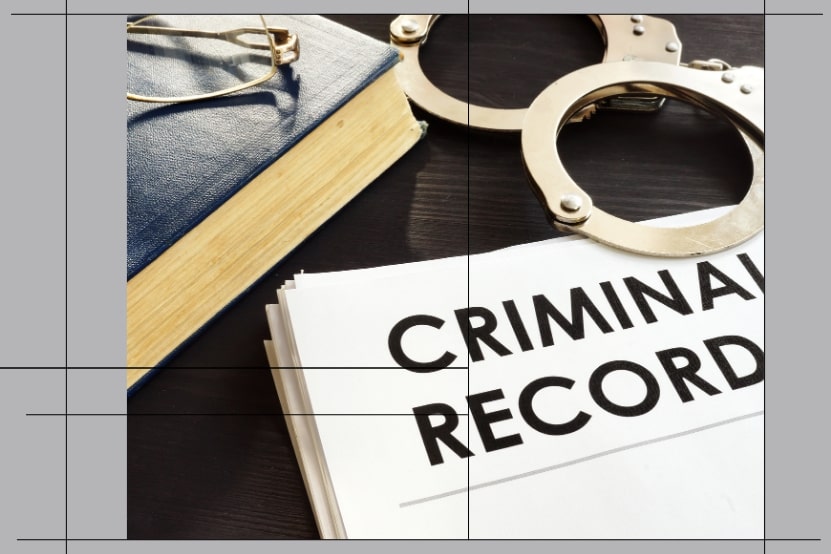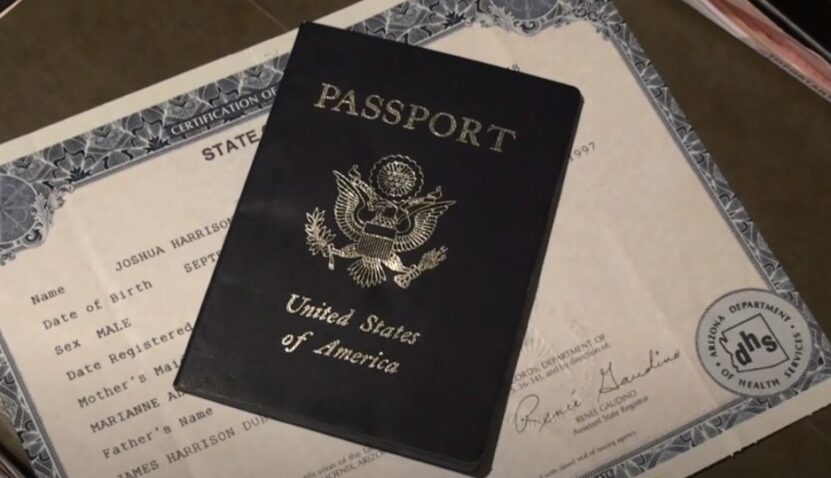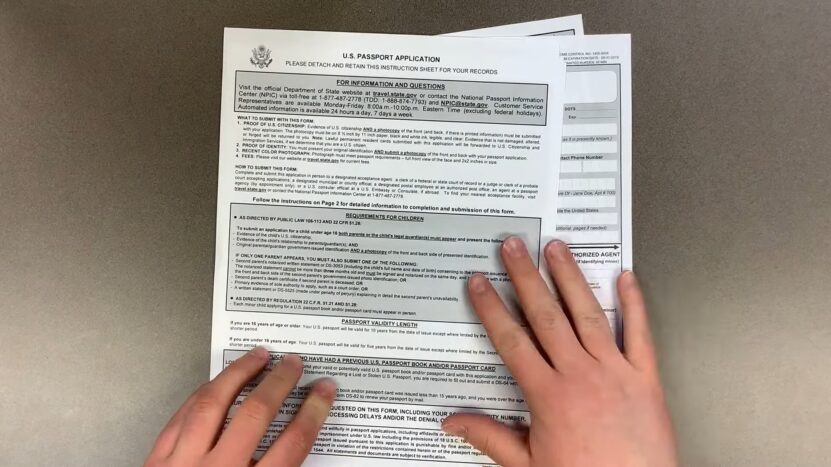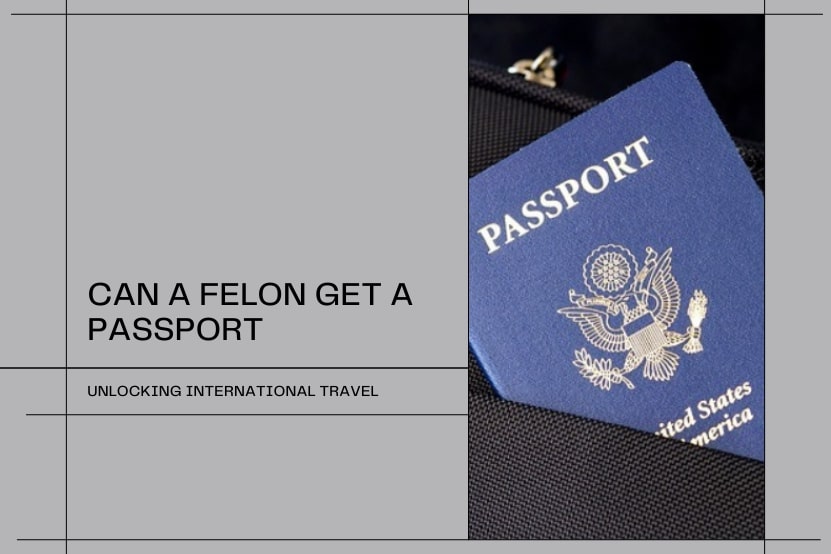In the United States, having a criminal record can significantly affect one’s life, making it difficult to find a job, secure housing, or even access certain fundamental rights. Among these rights is the ability to travel internationally, which often necessitates obtaining a passport.
But a question that often lingers in the minds of those who have been convicted of a felony is, “Can a felon get a passport?”
The answer is not always straightforward and depends on several factors. This blog post aims to shed light on this complex topic, aiming to give felons, their families, and interested parties a more profound understanding of passport eligibility amidst a felony conviction.
The Impact of Felony Convictions on Passport Eligibility

Felony convictions do impact passport eligibility, but not in all circumstances. There is a common misconception that felons are automatically disqualified from receiving a passport. While certain types of felony convictions can indeed make you ineligible for it, others do not.
In the United States, passport eligibility is not primarily determined by your criminal record but rather by specific conditions that might be linked to your felony conviction.
For example, owing a certain amount of child support or having certain drug-related offenses can disqualify you from receiving a passport. This is not a broad ban on all felons but rather a targeted disqualification for those with specific circumstances related to their felonies.
Understanding these specific conditions and how they impact passport eligibility can be tricky. Therefore, it is essential to conduct proper research or consult a legal professional who can provide personalized guidance based on your particular situation.
Eligibility Requirements
In the United States, the general requirements for obtaining a passport include being a U.S. citizen or non-citizen national, having suitable identification, and presenting proof of citizenship. In addition to these, one must fill out the appropriate application form and pay the necessary fees. While these requirements seem straightforward, there are additional stipulations for individuals with a felony record.
These additional stipulations could include compliance with probation or parole conditions, payment of outstanding court-ordered obligations, and clearance of any federal warrants. Notably, anyone convicted of drug trafficking across international borders, either by land or air, is ineligible to receive a passport.
Finally, having a felony conviction does not necessarily mean you cannot ever obtain a passport. But, the type of felony conviction and current legal standing significantly determine whether one can meet these eligibility requirements.
Determining if You Are Disqualified Due to Felony Convictions

The specific type of felony convictions that result in automatic disqualification from passport eligibility are often related to international drug trafficking. If you’ve been convicted of a state or federal drug offense that involved crossing international borders, you are usually ineligible to receive a U.S. passport.
However, other felony convictions may not directly result in disqualification but can complicate the process. For instance, individuals owing over $2,500 in child support are flagged and denied passports until their payment issues are resolved. Unresolved felony warrants can also prevent the issuance of a passport.
Therefore, it’s essential for anyone with a felony conviction to review their specific circumstances and seek legal counsel if needed to determine their eligibility. Remember, the particular conditions of your case will largely dictate your passport eligibility.
Factors That Affect Eligibility for Felons

When evaluating whether a felon can get a passport, several factors come into play. As mentioned earlier, the nature of the felony conviction is of paramount importance. Convictions related to international drug trafficking, certain sex crimes, treason, and similar offenses are among those that will likely prevent passport issuance.
Moreover, the current legal status of the felon is equally critical. Felons who are still under probation or parole, or have pending charges or outstanding legal financial obligations, might find it challenging to get a passport. Being in good legal standing, i.e., having served your sentence, completed probation, and fulfilled all court-ordered obligations, enhances your eligibility chances.
Finally, having a pattern of criminal behavior, especially related to passport or visa fraud, could negatively impact your eligibility. While this does not equate to automatic disqualification, it may raise red flags during the application process.
Expungement and Its Effect on Eligibility
Expungement of criminal records can significantly improve a felon’s chances of obtaining a passport. When a record is expunged, the conviction is effectively “erased” in the eyes of the law, and it is as if the felony conviction never happened.
If your felony conviction disqualifies you from obtaining a passport, getting the conviction expunged can help. However, the process of expungement varies by state and the nature of the crime. Therefore, consulting with an attorney experienced in expungement law can provide the best course of action.
Remember, while expungement may help improve your eligibility for a passport, it does not automatically guarantee a successful passport application. The decision still rests with the U.S. Department of State, the entity responsible for passport issuance.
Seeking a Pardon or Restoration of Rights for Eligibility
Another option for felons looking to improve their passport eligibility is seeking a pardon or restoration of rights. A pardon is an act of forgiveness from the government, while restoration of rights means reinstating the rights lost as a result of the conviction.
These processes can be complicated and time-consuming, and their success largely depends on the specific laws of your state. Moreover, like expungement, obtaining a pardon or restoration of rights does not automatically mean that your passport application will be approved.
However, pursuing these options could significantly enhance your standing. Therefore, it may be worth considering these paths with the guidance of a legal professional.
Travel Restrictions for Felons with Valid Passports
Assuming a felon successfully obtains a passport, certain travel restrictions may still apply. Some countries restrict or deny entry to individuals with a criminal record. Therefore, it’s crucial to research the entry requirements of your intended destination before making travel arrangements.
Also, felons on probation or parole may have travel restrictions as part of their supervision agreement. Therefore, even with a valid passport, travel may be restricted based on these conditions.
It is also important to understand that a U.S. passport does not guarantee entry into another country. Immigration officers of the destination country have the final say on who is allowed to enter.
The Process of Applying for a Passport as a Felon

Applying for a passport as a felon follows the same general process as anyone else, with a few additional considerations. You’ll need to fill out the DS-11 application form and provide proof of U.S. citizenship, a valid ID, and recent passport photos. You’ll also need to pay the applicable fees.
However, because of your felony status, you may need to provide additional documentation. This could include court documents proving you’ve served your sentence, fulfilled your probation or parole conditions, or cleared all your legal financial obligations.
While the process may be more complex, it is possible for a felon to successfully navigate it. However, given the potential complications, seeking legal counsel to guide you through the application process may be beneficial.
Tips and Considerations
If you are a felon seeking to obtain a passport, there are a few things to keep in mind. Firstly, patience is key. The application process can be lengthy and even more so for individuals with a criminal record. Therefore, it’s best to start the process well ahead of when you intend to travel.
Honesty is crucial during the application process. Providing false information on your application is a federal offense and could lead to further legal complications.
Consider seeking professional help. Navigating the legal complexities of obtaining a passport as a felon can be difficult, and a legal professional can provide valuable guidance.
Final Words
While a felony conviction can complicate the process of obtaining a passport, it does not necessarily disqualify you. The nature of the conviction, your current legal standing, and steps taken towards expungement, pardon, or restoration of rights all play a crucial role in determining eligibility.
The journey toward passport acquisition for a felon can be fraught with obstacles, but it is not an impossible one. With patience, honesty, and the right legal guidance, it is indeed possible for a felon to secure it. Above all, never let your past define your future. Continue to strive for rehabilitation and personal growth, and doors will open where you least expect them.

